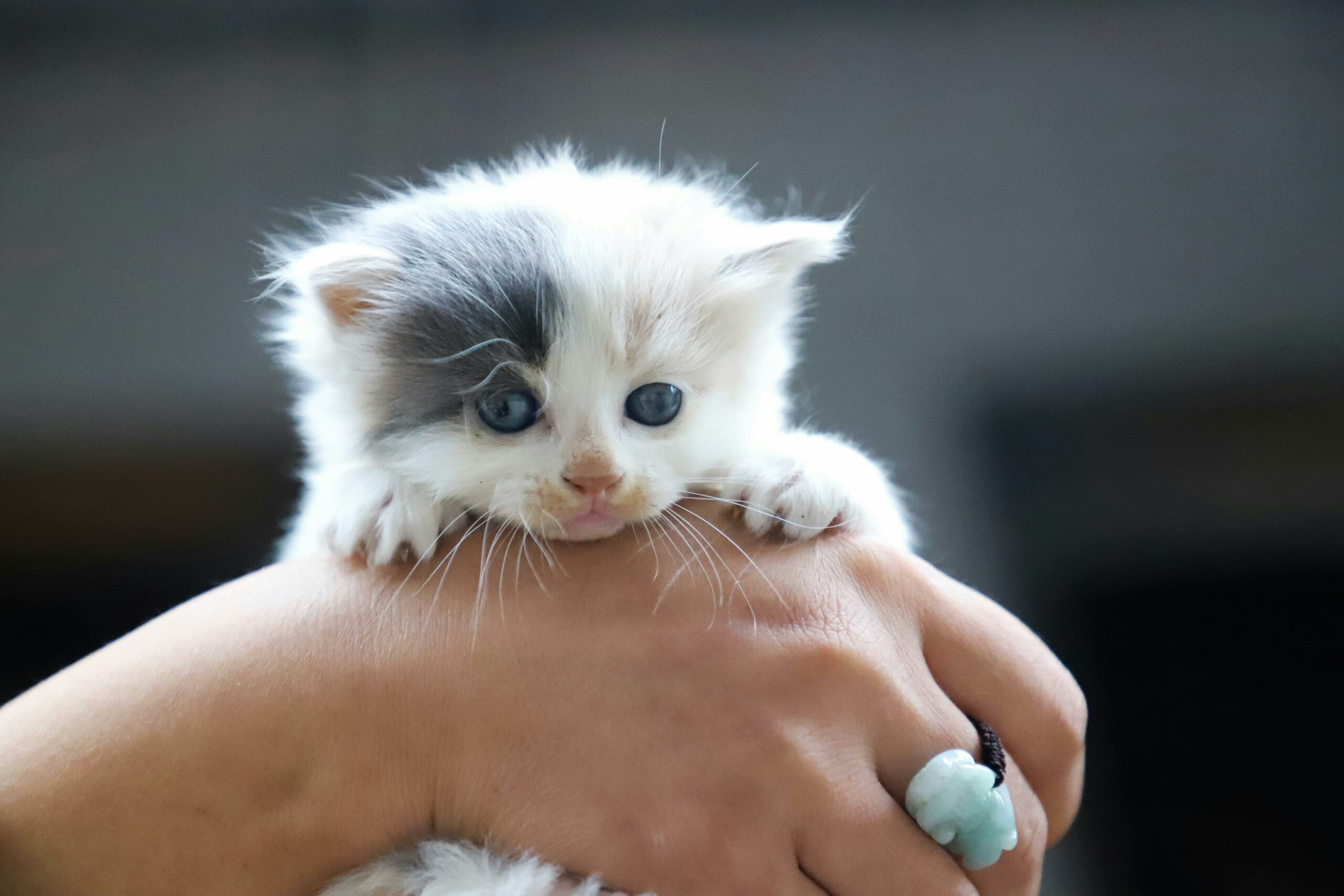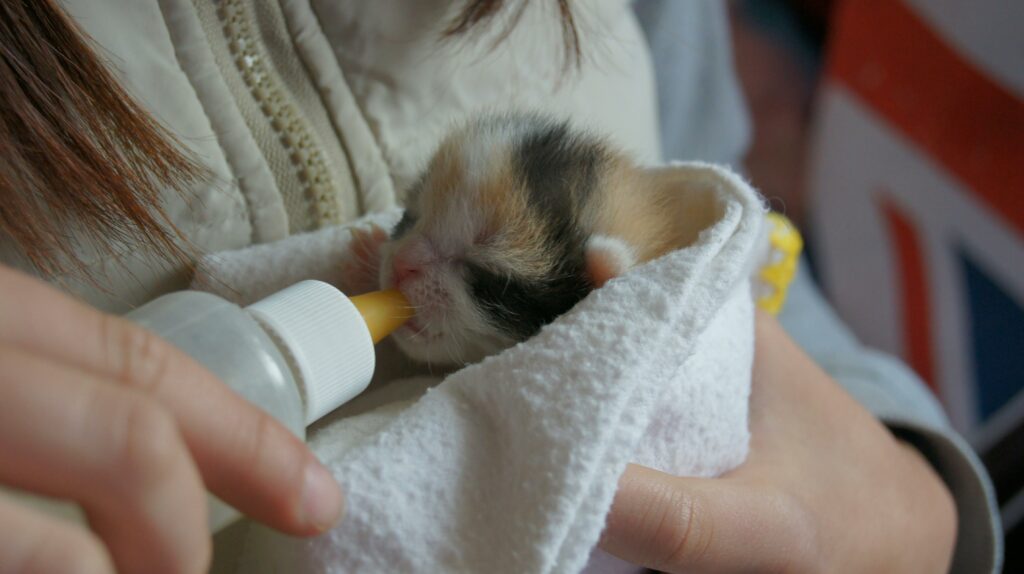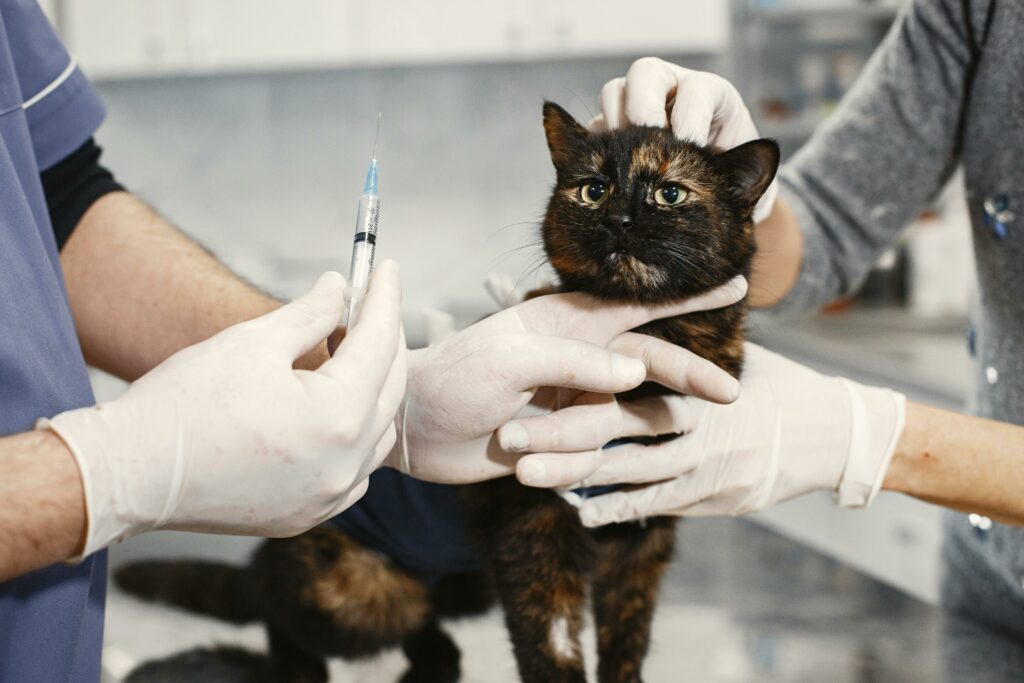
Welcoming a new kitten into your home is an exciting experience. However, understanding the essentials of pet care for kittens is crucial to ensure their well-being. From nutrition to socialization and regular vet check-ups, your kitten’s early months are vital for their growth and development. This guide covers everything you need to know about caring for kittens, providing practical tips to help you give your kitten the healthiest start in life.

Nutrition While Caring for Kittens
Proper nutrition is the foundation of good health, especially in kittens who are growing rapidly. Feeding your kitten the right foods in the right quantities will set the stage for a healthy adult life.
1. High-Quality Kitten Food
Kittens require a diet specifically formulated for their growth needs. Look for kitten-specific foods rich in protein, fats, and essential vitamins. High-quality kitten food typically includes animal-based proteins and nutrients like DHA, which supports brain development. Ensure that you feed your kitten in small, frequent meals throughout the day, as their tiny stomachs can only handle a limited amount of food at once.
2. Importance of Hydration
Kittens often prefer water bowls over water fountains, as they are still developing a sense of curiosity and might be wary of unfamiliar objects. Keep fresh water available at all times to encourage hydration. Additionally, many veterinarians recommend a mix of wet and dry food to maintain a balanced moisture level in their diet.
3. Avoiding Harmful Foods
Certain foods that are safe for humans, such as chocolate, onions, and garlic, are toxic to kittens. Be cautious about what your kitten has access to, especially if they tend to nibble on things around the house. Stick to veterinarian-recommended treats and foods designed specifically for feline health.

Socialization and Behavior Training for Kittens
Socialization during the early weeks of a kitten’s life has a significant impact on their behavior as adults. Positive experiences with people, sounds, and other animals will help build your kitten’s confidence and reduce fear-based behaviors.
1. Introducing Your Kitten to New Experiences
Expose your kitten to various sights, sounds, and gentle handling to help them adjust to their environment. Handling your kitten frequently, with gentle petting and play, helps them grow accustomed to human touch. Encourage visitors to interact calmly with your kitten to foster friendliness with different people.
2. Basic Litter Training
One of the first training steps is teaching your kitten to use a litter box. Most kittens pick up on litter box usage naturally, but it’s essential to provide an easily accessible, clean litter box in a quiet area. Avoid placing it near their food or water dishes, as cats prefer to keep their eating area separate from their litter space.
3. Discouraging Negative Behaviors
Kittens are naturally playful, which can sometimes lead to mischievous behaviors like scratching furniture or biting hands. Provide scratching posts and interactive toys to redirect these instincts positively. If your kitten tends to bite or scratch, gently discourage this behavior with a firm “no” and redirect their attention to a toy.

Health and Preventive Care for Kittens
Your kitten’s first year is crucial for establishing a foundation of preventive care, which includes vaccinations, check-ups, and dental hygiene.
1. Scheduling Initial Vet Visits
Take your kitten for a first vet check-up within a few weeks of adoption to assess their health and begin vaccinations. Common vaccines for kittens include FVRCP (which protects against feline viral rhinotracheitis, calicivirus, and panleukopenia) and rabies. Regular vaccinations are essential to protect against contagious diseases that kittens are particularly vulnerable to.
2. Parasite Prevention
Kittens are prone to parasites such as fleas, ticks, and intestinal worms. Speak to your veterinarian about safe parasite prevention options. Many products are kitten-friendly and help protect them from parasites without the risks associated with adult treatments. Routine deworming may also be advised in the early months.
3. Dental Care
Establishing good dental hygiene from an early age can prevent issues down the line. You can introduce a kitten-safe toothbrush to get them accustomed to regular teeth cleaning. Some pet stores offer dental treats specifically designed for young cats, which can also promote oral health.

Enrichment and Playtime While Caring for Kittens
Play is an important part of pet care for kittens, as it helps with motor skills, mental stimulation, and overall happiness. Kittens are naturally energetic, and channeling this energy positively can improve their health and your bond with them.
1. Providing Toys and Stimulation
Kittens benefit from variety in toys, including balls, feathers, and small interactive puzzles. Toys that mimic prey-like movements encourage their hunting instincts, keeping them mentally engaged. Rotate toys periodically to keep them interesting and prevent boredom.
2. Designating Safe Climbing Spaces
Cats love to climb, and providing a safe, designated climbing area like a cat tree can prevent them from scaling less suitable surfaces. This will also help them expend energy in a positive way while strengthening their coordination skills. Having climbing spaces also allows kittens to explore and feel more secure, as elevated spaces are a natural comfort to cats.
3. Creating Routine Play Sessions
Routine play sessions help you bond with your kitten and give them structured activity time. Laser pointers, feather wands, and treat puzzles are excellent choices for interactive play, encouraging your kitten to engage actively and helping to burn off energy. Playtime can also alleviate stress and reduce the chances of behavioral problems as your kitten matures.

Grooming and Comfort for Kittens
Introducing grooming practices early is essential to ensuring your kitten becomes accustomed to these routines. Grooming contributes to your kitten’s comfort and hygiene, making it an integral part of pet care for kittens.
1. Brushing and Coat Care
Most kittens learn self-grooming behaviors quickly, but regular brushing is still important, especially if they have long fur. Brushing helps reduce hairballs and keeps their coat in top condition. Brushing sessions also serve as bonding time and reduce the amount of loose fur around your home.
2. Nail Trimming
Kittens’ nails grow rapidly, and sharp claws can lead to unintended scratches. Introduce nail trimming slowly to help your kitten get used to it. Start by gently handling their paws without trimming, then move on to trimming just the tips of the nails every couple of weeks.
3. Providing a Comfortable Sleeping Area
Kittens spend much of their day sleeping to support their rapid growth. Providing a soft, comfortable bed in a quiet area allows them to rest peacefully. Many cats prefer sleeping in warm, enclosed spaces, so a cozy nook or pet bed with high sides may be ideal.

Conclusion
Raising a kitten requires dedication and a structured approach to nutrition, socialization, preventive care, and enrichment. By addressing these areas, you’ll ensure your kitten grows up healthy, well-adjusted, and happy. Pet care for kittens is an investment in your future with a loving, loyal pet who will bring joy to your life for years to come. With patience, consistency, and the right approach, you can give your kitten the foundation they need to thrive.
References:
- The Right Foods for Kittens – PetMD
- Feeding Kittens 101: How Much To Feed Kittens, How Often, and More – PetMD
- Feeding Growing Kittens – VCA Animal Hospitals
- Feeding Kittens: What, When, How Much – WebMD
- Socialization of puppies and kittens – American Veterinary Medical Association
- Recommendations for New Kitten Owners – VCA Animal Hospitals
- Cat Vaccinations: What Vaccines Do Cats Need? – PetMD
- You, Your Cat, & Parasites – Pets & Parasites
- Cat Dental Care: Keeping Your Cat’s Teeth Clean – BetterVet
Share this:
- Click to share on WhatsApp (Opens in new window) WhatsApp
- Click to share on Facebook (Opens in new window) Facebook
- Click to share on LinkedIn (Opens in new window) LinkedIn
- Click to share on Pinterest (Opens in new window) Pinterest
- Click to share on Tumblr (Opens in new window) Tumblr
- Click to share on X (Opens in new window) X
- Click to share on Reddit (Opens in new window) Reddit
- Click to share on Telegram (Opens in new window) Telegram
- Click to email a link to a friend (Opens in new window) Email
- Click to print (Opens in new window) Print






























